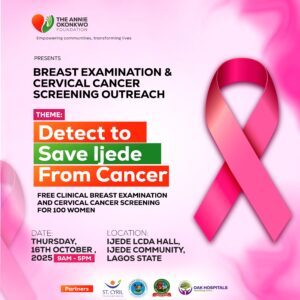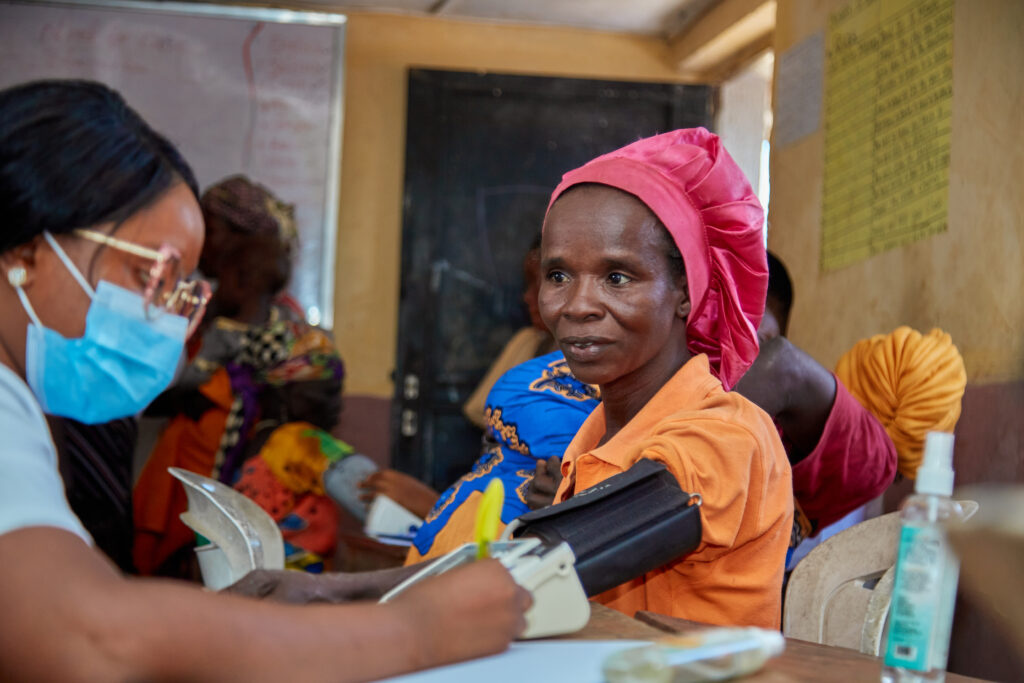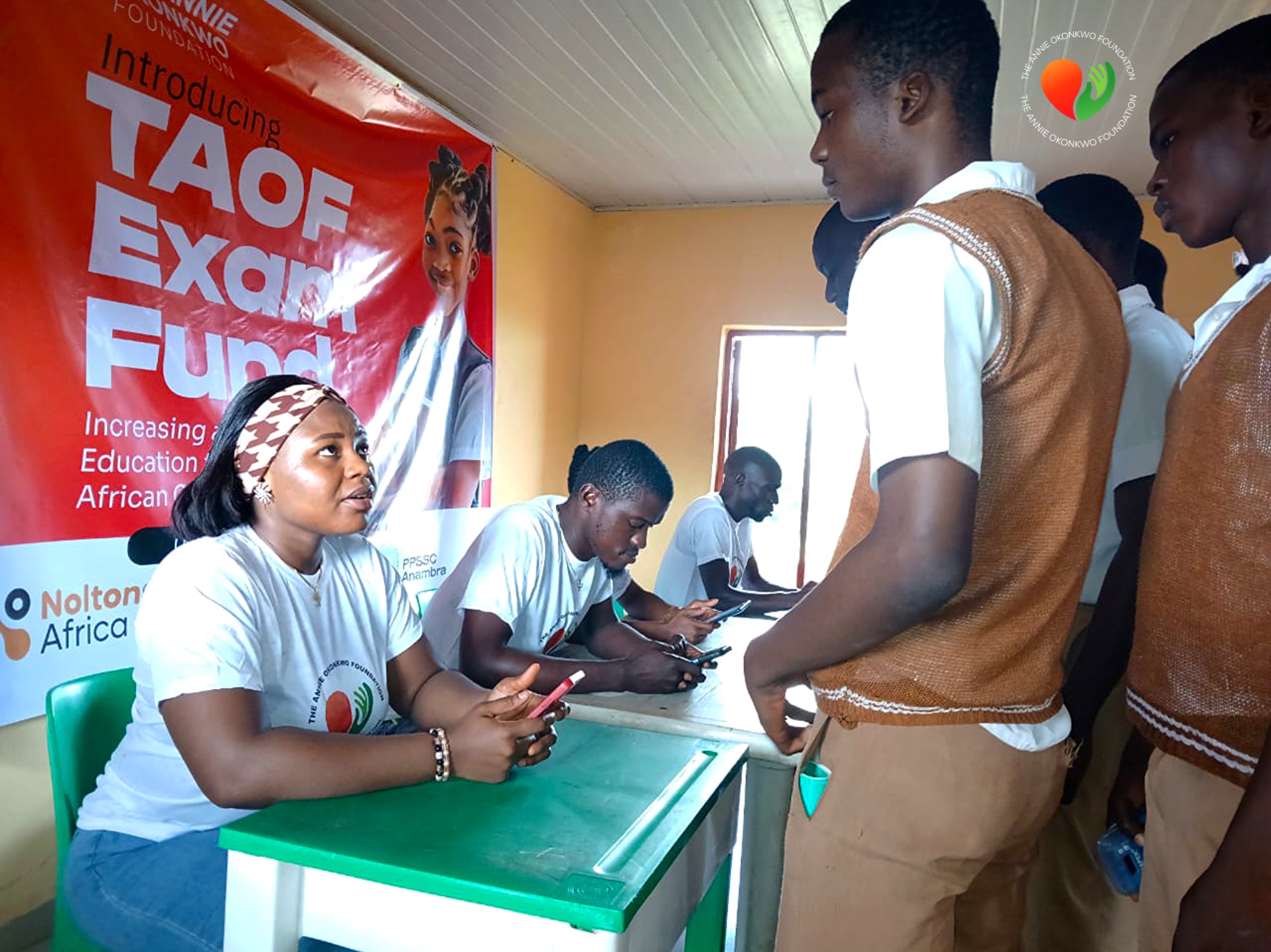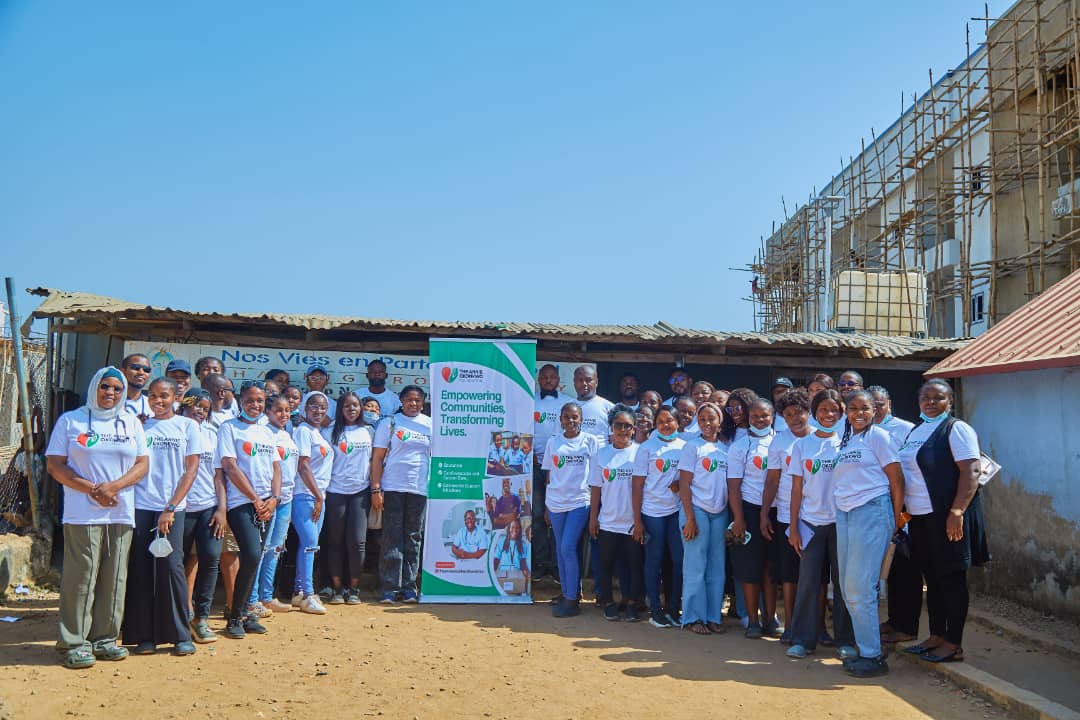Insights from TAOF’s Cardiovascular Outreach at Kuchingoro IDP Camp
Forty-four residents of the New IDP Camp, Kuchingoro, Abuja, did not know they were on the verge of being attacked by the slow killer called hypertension. Some knew about the diagnosis but had been struggling to stay consistent with medication, while others did not understand the full extent of what it could do to their bodies, especially in a place where healthcare access is limited.
A Little Background
Hypertension is a major health concern in Nigeria, with about 25% of adults at risk of developing serious heart disease, according to AHA journals. The World Health Organization (WHO) reports that non-communicable diseases (NCDs), including heart disease, account for 29% of all deaths in Nigeria, with 11% linked to cardiovascular problems. The increase in these diseases is largely due to urbanisation, unhealthy lifestyles, poor diets, lack of quality healthcare, and rising hypertension rates.
The problem is worse in displaced communities such as the New Kuchingoro Internally Displaced Persons (IDP) Camp in Abuja, where poor living conditions and limited healthcare, increase hypertension risk. Yet within these challenges, residents continue to build lives, raise families, and demonstrate remarkable resilience, even as access to preventive health education remains limited.
We Understood the Risk
Recognising the risks of hypertension, we partnered with the Kuchingoro IDP Camp community and 45 volunteer medical professionals, including doctors, nurses, and pharmacists, to bring care directly to the people.
In November 2024, our hearts were heavy with purpose as we prepared for what would become a life-changing mission. We distributed essential supplies, including blood pressure monitors, blood glucose testing kits, and stethoscopes, not just as medical tools but as resources to help residents take ownership of their health.
Bringing Care to the Camp
Our team mobilised with determination, conducting door-to-door pre-registration that reached every corner of the camp. Through this approach, we enrolled 165 residents who were then provided with much-needed medical care.
What We Discovered
The screening results were alarming:
- Hypertension Cases
- 44 residents identified with hypertension (≥130/80 mmHg)
- Average reading: 161/98 mmHg, indicating urgent need for care
- Many had been living with it without knowing.
- Blood Sugar Screenings
- 23 tested
- 7 had elevated levels (≥6.9 mmol/L), suggesting diabetes risk
- Critical Case
- One resident with a blood pressure reading of 151/92 mmHg and a pulse of 75 bpm was identified with suspected hypertensive heart failure, showing clear evidence of cardiovascular strain from long-term untreated hypertension.
These findings underscored the importance of early detection and timely treatment, while also highlighting the courage of those who came forward to be screened and the urgent need to make healthcare accessible for everyone.
Why Hypertension Is Called the Silent Killer
Hypertension earned its nickname “the silent killer” for good reason. Unlike other diseases with obvious symptoms, high blood pressure often develops quietly over years, damaging blood vessels, the heart, kidneys, and brain. By the time symptoms appear, significant harm may already have occurred.
In the IDP camp, where stress is high, nutrition is limited, activity is constrained, and healthcare options are scarce, this condition thrives. Yet in the face of these challenges, the people of Kuchingoro showed determination by embracing screenings, engaging in health education, and taking steps to protect their wellbeing.
Immediate Interventions
Our medical team did not just diagnose and leave. Working alongside the community, we:
- Conducted a needs assessment to identify the most urgent health challenges in Kuchingoro
- Provided immediate medication to those with dangerously high readings
- Distributed essential medical supplies to people in urgent need of treatment
- Delivered health education on practical lifestyle modifications
- Established follow-up schedules for continued monitoring and support
- Connected severe cases with hospitals for specialised care.
Lessons Learned
This mission reinforced several critical truths about healthcare in displaced communities:
- Access saves lives: Screenings detect life-threatening conditions in minutes.
- Education empowers: Awareness equips people to advocate for their own health.
- Community matters: Local leadership and participation make interventions sustainable.
- Prevention is powerful: Early detection and treatment can prevent strokes, heart attacks, and premature death.
A Call to Action
Every community has its own “Kuchingoro”, places where people live with preventable conditions without access to healthcare. The fight against hypertension and other silent killers requires all of us: healthcare professionals, community leaders, government officials, and caring individuals who refuse to let others suffer when solutions exist.
The 44 people diagnosed that day represent countless others across Nigeria and beyond. Their stories remind us that behind every statistic is a person with dreams, families, and the right to live a healthy life.
Because we know better, we must do better. Access to care should not be a privilege, but a right.
Building on the Momentum
Our work at Kuchingoro IDP Camp was just the beginning. The 44 newly diagnosed individuals now have a chance at longer, healthier lives because someone cared enough to check their blood pressure.
We are building on this momentum by partnering with the people of Ijede in Ikorodu to expand access to care, this time through breast examinations and cervical cancer screening.

Our goal is to continue identifying silent threats early while equipping communities with the education, resources, and hope they need to thrive.
Just as 44 lives were changed in Kuchingoro, your support can help us reach even more people in Ijede. Donate here.



